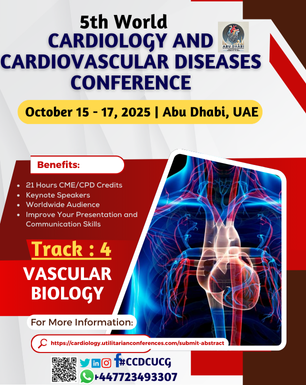Some Sub topics of vascular-biology:
Vascular Development and Morphogenesis, Endothelial Biology, Vascular Smooth Muscle Cell (VSMC) Biology, Vascular Inflammation and Immunology, Atherosclerosis and Plaque Biology, Vascular Permeability and Barrier Function, Hemostasis and Thrombosis, Vascular Aging, Vascular Mechanobiology , Vascular Regeneration and Repair.
What is vascular-biology?
vascular-biology is the study of blood vessels—their structure, function, and role in health and disease. It is a multidisciplinary field that explores how blood vessels develop, maintain their function, respond to environmental stimuli, and contribute to various physiological and pathological processes.
Importance of Vascular Biology:
- Cardiovascular diseases (CVD) remain the leading cause of mortality worldwide. Vascular biology is central to understanding their mechanisms and developing treatments.
- Blood vessels are involved in virtually every organ system, making vascular biology relevant to a wide range of diseases, including diabetes, cancer, and neurodegenerative conditions.
- Emerging research areas like vascular contributions to COVID-19 (e.g., endothelial injury, coagulopathy) highlight the field's importance in addressing new health challenges.





